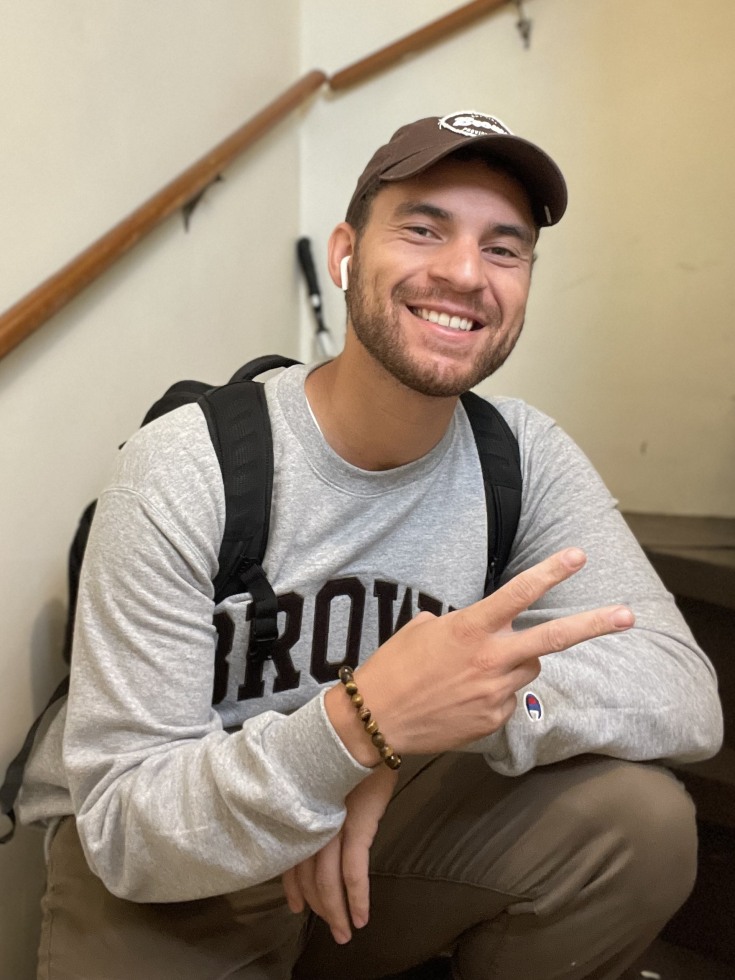PROVIDENCE, R.I. [Brown University] — When Terren Wise opened his acceptance letter to Brown, he had to read it several times to process what it said — and even then, it was hard to believe was real.
“I opened it up, and it said, ‘Congratulations,’” Wise said. “I was like, ‘That’s a very rude way to reject someone!’”
After all, the path that led the 30-year-old Minnesota native to Providence was long and intense — preceded by nine years of service in the U.S. Navy as a nuclear submarine mechanic.
The letter? A rejection, it was not. The reality didn’t sink in until he was on College Hill, attending his first courses as a Resumed Undergraduate Education and transfer student at Brown.
Just two months after his first day of classes, Wise is now set to deliver the student veteran keynote speech at Brown University’s annual Veterans Day ceremony on Friday, Nov. 11.
“Brown is a great school where I can be a vet and people will listen to my story,” Wise said.
When Wise first enrolled at the University of Minnesota after graduating high school, “it didn’t go well,” he said. The experience led him to join the U.S. Navy, traveling the world as a nuclear mechanic on submarines.
“Although I really was passionate about what I did, I had also been doing the same job for about nine years,” Wise said. “When someone tells you that you have to do something, that you have to study something, that you have to work for something, over and over and over — it makes you want to explore other interests.”
How do you eat an elephant?
Wise made the decision to transition to civilian life and head back to school, but it wasn’t smooth sailing. The first year, he applied to 11 different colleges and universities. He received 11 rejections. Instead of giving up, or heading straight into the workforce or back into the military, he kept seeking opportunities to bolster his applications through the nonprofit Service to School's VetLink Program, which provides free application mentoring and networking to veterans.
“My mom used to say, ‘How do you eat an elephant? … One bite at a time,’ and it always stuck with me,” Wise said. “Worst case scenario, I’m in the same spot I’m in now, so why not go out there and keep trying?”
Wise enrolled in community college, attended academic bootcamps hosted by the Warrior Scholar Project, completed internships — including Yale’s Research Experience for Veteran Undergraduates, in which he took part in nine weeks of summer research in quantum mechanics and astrophysics — and kept applying to schools. “And here I am,” he said.
Though Wise said he’s taking things one bite at a time, there’s still plenty on his plate.
